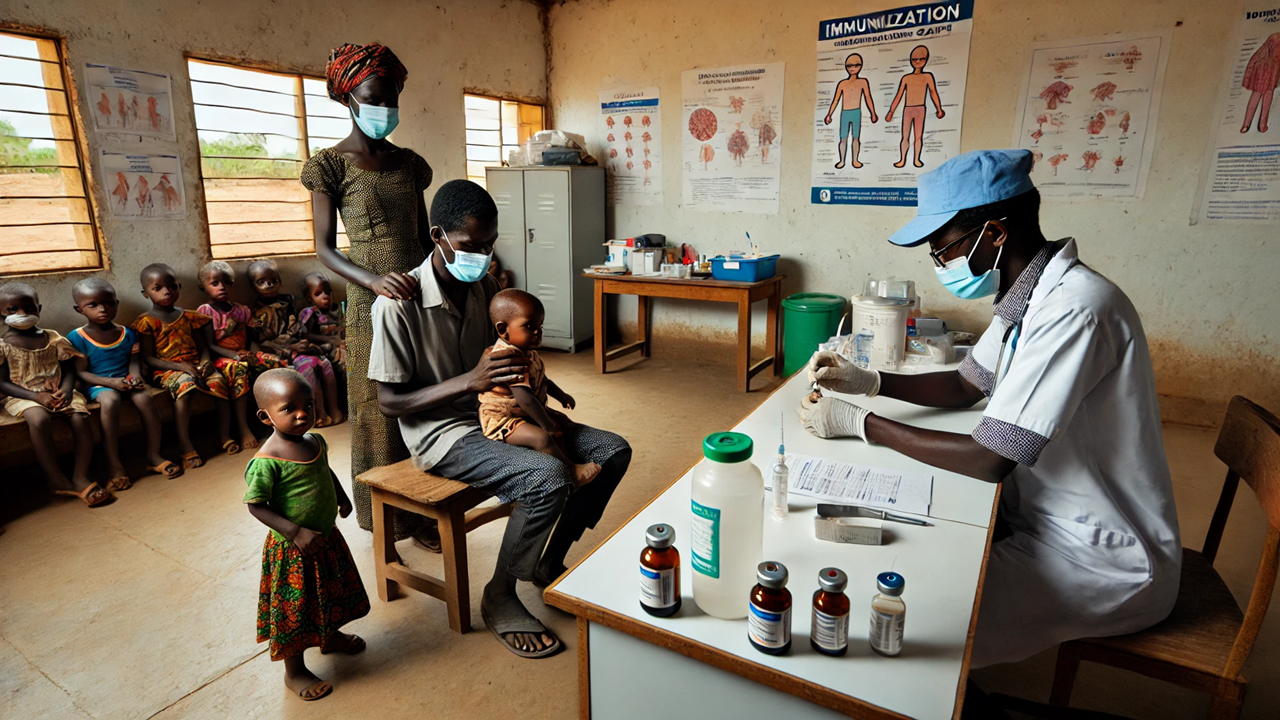UNICEF has today launched a US$9.9 billion appeal to provide emergency assistance to 109 million children across 146 countries in 2025, as the organization responds to an unprecedented number of humanitarian challenges. These include ongoing conflicts, climate-related disasters, displacement, and health crises expected to intensify next year.
With over 213 million children at risk worldwide due to various humanitarian emergencies, the scale of need is alarmingly high. UNICEF’s Executive Director, Catherine Russell, emphasized that the humanitarian crisis is worsening, with more children being affected every day. "It is UNICEF’s mandate to reach each of these children with the essential services and supplies they need, and to ensure that their rights are protected and upheld,” she stated, reaffirming the organization’s 78-year mission to safeguard children's well-being.
In 2024, over 57.5 million children were born in conflict zones or areas grappling with humanitarian crises. That number is expected to increase by at least 400,000 in 2025. The funds requested for 2025 are critical to address these dire needs and ensure timely, effective, and adequate assistance.
Targeted Aid for Critical Services
UNICEF’s 2025 appeal outlines specific goals aimed at addressing the urgent needs of children and women affected by crises. These include:
56.9 million children and women accessing primary healthcare in UNICEF-supported facilities.
34 million children (6-59 months) screened for malnutrition (wasting).
20.6 million children, adolescents, and caregivers receiving mental health and psychosocial support.
11.1 million individuals benefiting from gender-based violence risk mitigation and response programs.
24 million children receiving formal or non-formal education, including early learning.
55.3 million people accessing clean water for drinking and domestic use.
Top Funding Priorities for 2025
The appeal highlights the countries with the greatest need for humanitarian support. The top five countries receiving the largest portion of the appeal are:
Afghanistan: US$1.19 billion
Sudan: US$840 million
Democratic Republic of the Congo: US$804 million
State of Palestine: US$716 million
Lebanon: US$658 million
Key Achievements in 2024
In 2024, UNICEF made significant strides in addressing urgent humanitarian needs, including:
26.4 million children and women accessing primary health care.
12.2 million children (6-59 months) screened for malnutrition.
17.4 million people receiving access to clean water.
9.7 million children accessing education, both formal and non-formal.
12.6 million children, adolescents, and caregivers benefiting from mental health and psychosocial support services.
Underfunded Crises in 2024
While UNICEF received substantial donations for high-profile emergencies such as Afghanistan, Ethiopia, Syria, and Ukraine, many other countries continue to face severe underfunding. Notably, operations in countries like Burkina Faso, Lebanon, Uganda, Democratic Republic of Congo, Mali, and Myanmar remain significantly underfunded, creating barriers to providing critical assistance.
Call for Flexible Funding and Support
Russell emphasized the importance of flexible humanitarian funding, stating that it is crucial for meeting the needs of children affected by crises. She urged donors to provide more flexible funding to enable UNICEF to respond effectively to emergencies across the globe, especially those that are less visible in the international media.
“Imagine what we can achieve for children by working together through principled humanitarian action. Let us create a world where every child’s rights are protected, where every child can thrive, and where every child can develop in a world fit for them,” said Russell.
UNICEF’s appeal for 2025 comes at a time of rising global instability, with millions of children facing increasing threats to their safety, health, and future. The organization’s commitment to providing lifesaving aid remains steadfast, but its ability to meet these needs depends on the timely and generous support from donors around the world.











